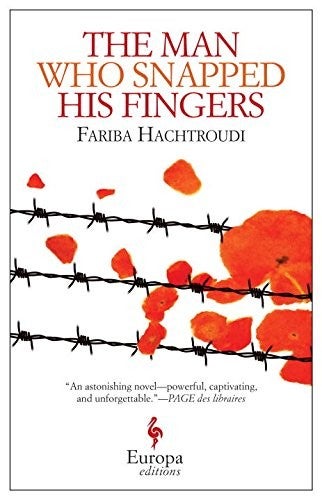Fariba Hachtroudi,The Man Who Snapped His Fingers: 'Tables turn on a torturer', book review
Ala has been living in limbo for five years, awaiting news of his asylum application. His only friend is Yuri, a fellow “fugitive”, from Russia

The French-Iranian author Fariba Hachtroudi’s English language debut is a profound, exquisitely crafted novella about life under a merciless regime, about torture and resilience, truth and culpability and the triumph of love over fear.
Two survivors of a totalitarian state, “the Theological Republic”, meet in exile, somewhere in northern Europe. A former colonel, Ala, was one of the Supreme Commander’s inner circle, “in charge of security in penal institutions” including the notorious prison ironically named “Heaven”.
The Supreme Commander could be any number of despots but the parallels with Hachtroudi’s homeland are obvious: women’s voices are often silenced, female detainees are systematically raped, and the similarity in pronunciation between Heaven and Evin, Tehran’s main prison, seems more than coincidental.
Ala has been living in limbo for five years, awaiting news of his asylum application. His only friend is Yuri, a fellow “fugitive”, from Russia.
Ala is desperate to be reunited with his beautiful astrophysicist wife but until he is granted refugee status and can work, she cannot join him. If he is sent home it is to certain death.
Vima is a victim of the regime. Known as “455”, she is famous for having remained unbroken, despite horrific torture, described in spare, unrelenting prose. Her husband, Del, had been a terrorist suspect, Vima the bait.
But she refused to betray him. Now the tables are turned. The Colonel is reduced to a number while Vima works as a translator at the Office for Refugees and Stateless Persons. She recognises the Colonel’s limp - her jailers’ feet were all she could see while blindfolded - and she realises that this is the “saviour” who stopped her torture.
Hachtroudi reveals these stories through alternating first-person narratives. It is soon clear that the future holds little for them both without their loved ones. Vima’s loyalty to Del, who disappeared after his release, clearly affects Ala, who has a similar passion for the wife he left behind.
He wants Vima to be his messenger and asks her to write down his “testament as a free man”. But it is Yuri who holds the last piece of vital information that helps absolve Ala and leads Vima to lay her ghosts to rest.
The Man Who Snapped His Fingers is a powerful indictment of political violence, and suggests the West is also culpable: “Virtual war is a rich country’s weapon, while the poor country resorts to terrorism.”
The Man Who Snapped His Fingers, By Fariba Hachtroudi, trs by Alison Anderson . Europa £9.99
Join our commenting forum
Join thought-provoking conversations, follow other Independent readers and see their replies
Comments
Bookmark popover
Removed from bookmarks